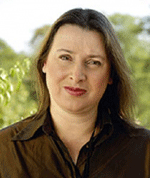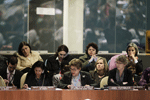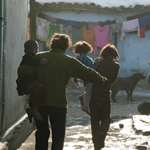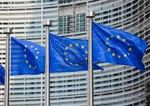Bulgaria
Published on Wed, 2017-08-23 09:21
Bulgaria is the poorest EU member state, with almost half of its children living in low-income households and more than half of elderly people with pensions below poverty line. The Bulgarian Gender Research Foundation (BGRF) and Bulgarian Social Watch coalition report that policies shaped by EU priorities and advice provided by the IMF and the World Bank declare as their fundamental purpose “the struggle against poverty”, but "they keep on demanding economic reforms which have proved to be totally inefficient". The leading assumption is that only the free market and strictly restricted government intervention can guarantee prosperity. Once adopted, "no one measures whether the welfare of people has improved, but only to what extent the recommended neoliberal policies have been implemented".
|
Published on Wed, 2016-08-24 14:37
Bulgaria has come a long way from its turbulent political and economic transition in the 1990s to becoming a member of the European Union (EU) in January 2007. Today, it is an upper middle-income economy of 7.2 million people with a per capita income of USD7,420. (GNI per capita, 2014).
However, since 2008, economic growth has been sluggish and income gains of the bottom 40 percent of the population have been weak. Supported by prudent macro-fiscal management, Bulgaria showed resilience during the global economic crisis with reduced imbalances and a sound public debt level (27.6% of GDP in 2014). Yet, convergence has slowed and Bulgaria’s income per capita are just 45 percent of the EU average in 2013. Eurostat data show that in 2014, Bulgaria holds second place in the at-risk-of-poverty-or-social-exclusion scale: Romania (40.2 %), Bulgaria (40.1 %) and Greece (36.0 %). The crisis and the measures taken to freeze income exacerbated social inequality and the chances of nearly half of the population to get out of the trap of poverty and social exclusion. Given this situation, what must be done to implement the 2030 Agenda?
|
|
Bulgaria has come a long way from its turbulent political and economic transition in the 1990s to becoming a member of the European Union (EU) in January 2007. Today, it is an upper middle-income economy of 7.2 million people with a per capita income of USD7,420. (GNI per capita, 2014).
However, since 2008, economic growth has been sluggish and income gains of the bottom 40 percent of the population have been weak. Supported by prudent macro-fiscal management, Bulgaria showed resilience during the global economic crisis with reduced imbalances and a sound public debt level (27.6% of GDP in 2014). Yet, convergence has slowed and Bulgaria’s income per capita are just 45 percent of the EU average in 2013.Eurostat data show that in 2014, Bulgaria holds second place in the at-risk-of-poverty-or-social-exclusion scale: Romania (40.2 %), Bulgaria (40.1 %) and Greece (36.0 %). Given this situation, what must be done to implement the 2030 Agenda?
|
Published on Thu, 2014-10-23 18:05
The proposed European Commission (EC) has just been approved by the European Parliament (EP) in Strasbourg. The current Commission consists of only nine women out of 28 which is no progress in comparison to the outgoing Barroso Commission.
“Before Jean-Claude Juncker was appointed president of the EC, he promised a modern and a female Commission. Unfortunately, this Commission is miles away from being a female Commission and is clearly not a mirror of European society, of which more than half of the population is female and much more diverse,” says Joanna Maycock, Secretary General of the European Women’s Lobby (EWL). Since its establishment, the EWL has demanded parity in all EU institutions and asks Member States to nominate one female and one male candidate for the College of Commissioners. For the EWL, it is a question of justice and fairness, as advocated in its 50/50 campaign with the title: “No modern Democracy without Gender Equality”.
|
Published on Tue, 2013-02-26 23:00
While many analysts believe the worse of the EU’s financial crisis is over, however as protests rock have rocked Bulgaria and forced the government to resign one might wonder if the worst road lies ahead. Bulgaria is generally considered the poorest member of the European Union and while the country demonstrated wiser financial sense that its Southern European counterparts its finances have been in poor shape since the 2009 financial crisis.
|
Published on Tue, 2012-11-27 07:46

Genoveva Tisheva. (Photo: EWLA)
|
“The Bulgarian government continues the trends of sacrificing social and economic rights of the citizens with the justification of economic and financial stability, thus continuing to sustain the phenomenon of ‘stability in poverty’,” warned last week the Bulgarian Gender Research Foundation (BGRF, member of Social Watch since 1999) in its report to the UN Committee on Economic, Social and Cultural Rights.
|
Published on Tue, 2012-07-24 09:12

Commission on Status of Women
opens its current session.
(UN Photo/Paulo Filgueiras)
|
Bulgarian government lacks of bodies in charge of regulating and monitoring gender equality, warned this month the civil society delegation to the 52nd Session of the Committee on Elimination of Discrimination against Women. The NGOs were represented by the Bulgarian Gender Research Foundation (focal point of Social Watch) and the Gender Alternatives Foundation, with the support of the Alliance for Protection against Domestic Violence.
|
Published on Mon, 2012-03-19 08:37
In terms of gender equity Bulgaria places itself above the European average and above all of its neighbours.
This is made apparent by the publication of the Gender Equity Index (GEI) 2012, published by Social Watch on the eve of Women’s International Day, March 8.
|
|
Environmental issues were extremely important in the country’s struggle for democracy. Now, after years of increasing apathy, more and more people are becoming involved in environmental issues. The introduction of Genetically Modified Organisms (GMOs) in the market and several flaws in the implementation of the NATURA 2000 program for conservation of natural areas have become two of the biggest challenges facing the country.
Implementing sustainable development will require that the Government safeguard the environment while meeting the country’s energy and infrastructure needs.
|
SUSCRIBE TO OUR NEWSLETTER
Submit

|







